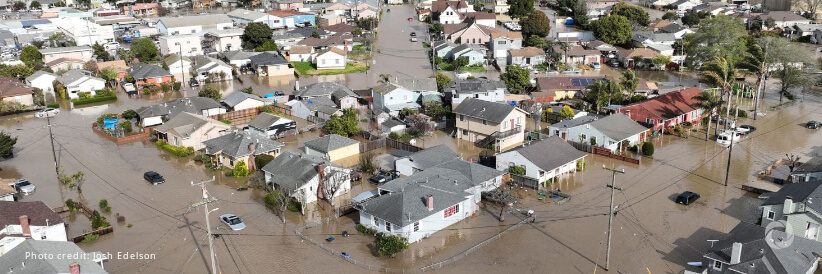The European Commission is publishing its latest reports on the state of water in the European Union. Covering the implementation of the Water Framework Directive, the Floods Directive, and the Marine Strategy Framework Directive, the reports highlight the progress made to improve the state of EU water bodies over the past six years. They also identify key areas where further efforts are needed.
The reports offer valuable insights into the condition of EU freshwater and marine waters and the actions taken to improve it, as well as measures to reduce flood risks. They also provide country-specific information and tailored recommendations to support continued progress and sustainable water management across Europe.
Information provided by the reports will play a crucial role in shaping the upcoming Water Resilience Strategy, which aims to address the most pressing water-related challenges in Europe. More work needed to ensure water resilience
Water Framework Directive Implementation report
The report on the implementation of the Water Framework Directive identified several positive trends. Member States have generally improved knowledge and monitoring of surface and groundwater bodies, increased spending, and improved application of EU water-related legislation, though there are considerable regional differences. Most groundwater bodies also continue to achieve good quantitative and chemical status.
However, significant work is needed to meet EU targets on freshwater quality and quantity. The average health of EU surface water bodies is critical, with only 39.5% achieving good ecological status, and only 26.8% achieving good chemical status. This is mainly due to widespread contamination by mercury and other toxic pollutants. Water scarcity and drought are also growing concerns across most of the EU.
The EU has made key recommendations to Member States to improve water management by 2027, including:
- Increase compliance with EU water laws by adhering to pollution limits, particularly nutrient pollution from agriculture, and ensuring that wastewater discharge is dealt with properly to protect the environment and human health;
- Ensure sufficient financing to address funding gaps and guarantee effective implementation of water management measures;
- Implement additional measures to address persistent environmental challenges, such as chemical pollution;
- Promote water reuse and increase efficiency and circularity to prevent aquifer overexploitation, combat illegal abstractions, and mitigate droughts.
Floods Directive report
The assessment of the implementation of the Floods Directive shows notable improvements in flood risk management, better alignment of objectives and measures, and consideration of challenges posed by climate change.
Nevertheless, most plans failed to include quantitative targets, making it difficult to conclude as to the effectiveness of flood risk management. With more frequent and severe floods in Europe, Member States need to expand their planning and administrative capacity, and adequately invest in flood prevention. To achieve this, ecosystem restoration and nature-based solutions, as well as preparedness measures like early warning systems and awareness raising, are key.
Marine Strategy Framework Directive Programmes of Measures report
According to the report on the Marine Strategy Framework Directive, some limited progress has been made towards introducing and implementing measures to reach the Directive’s objectives, particularly relating to marine litter.
Member States are encouraged to do more to achieve good environmental status of all EU marine waters and to sustainably protect the resource base upon which marine-related economic and social activities depend.
Some key EU recommendations to achieve this include:
- Enhancing the design and implementation of measures to protect and restore marine biodiversity, and to reduce nutrient, chemical, and underwater noise pollution;
- Introduction of new and improved financing and governance measures to ensure effective implementation of ambitious and coherent measures across the EU’s marine environments.

